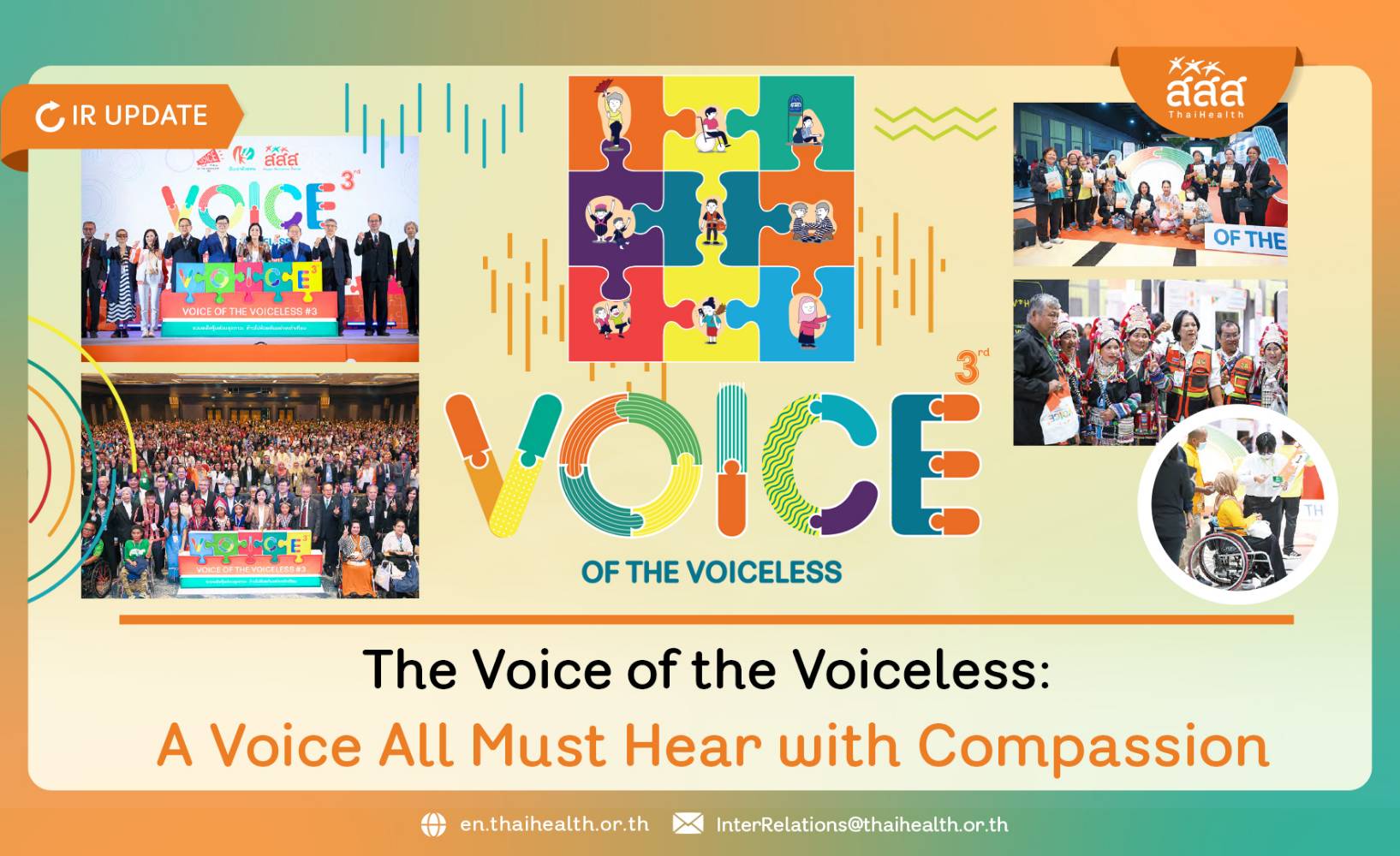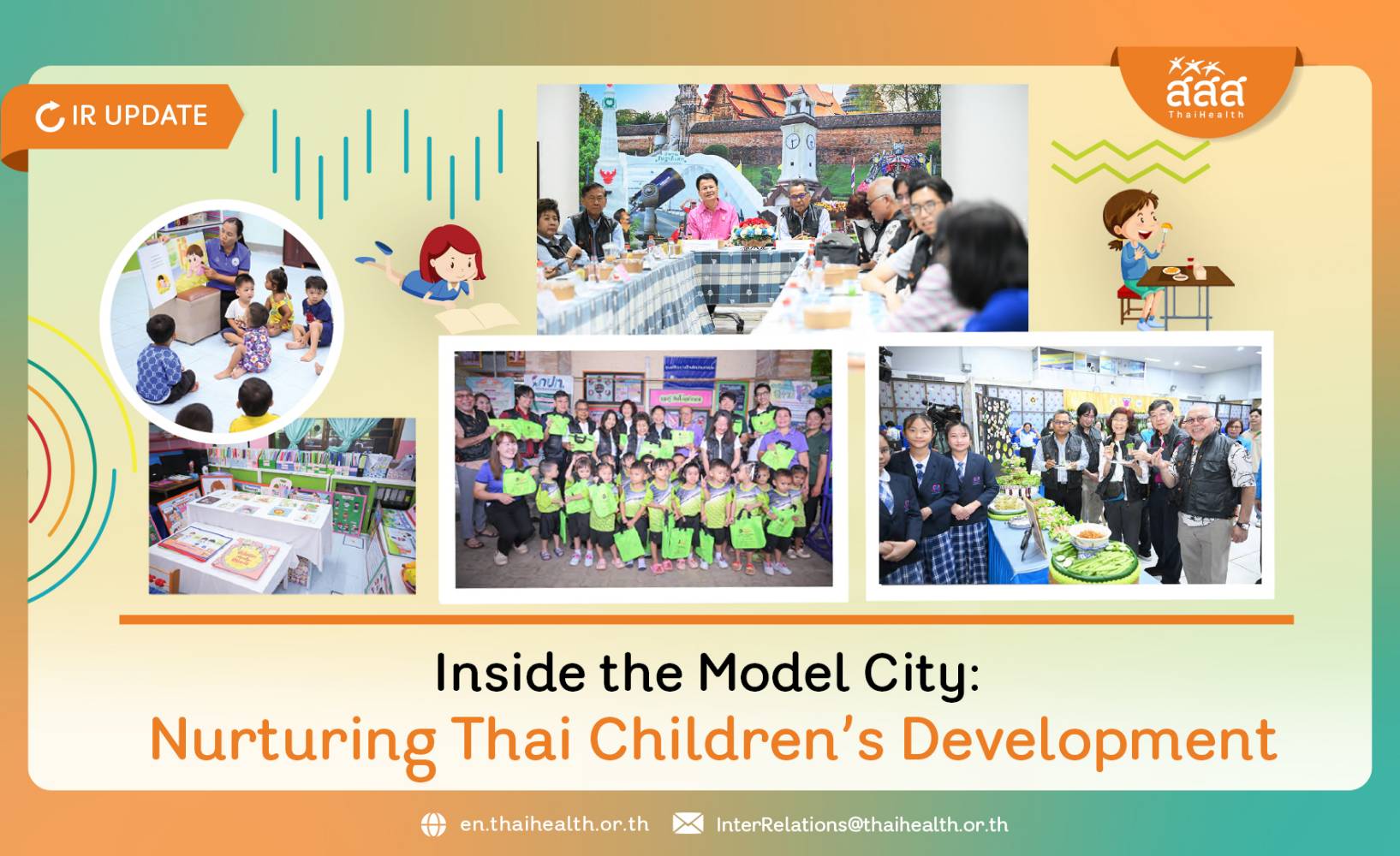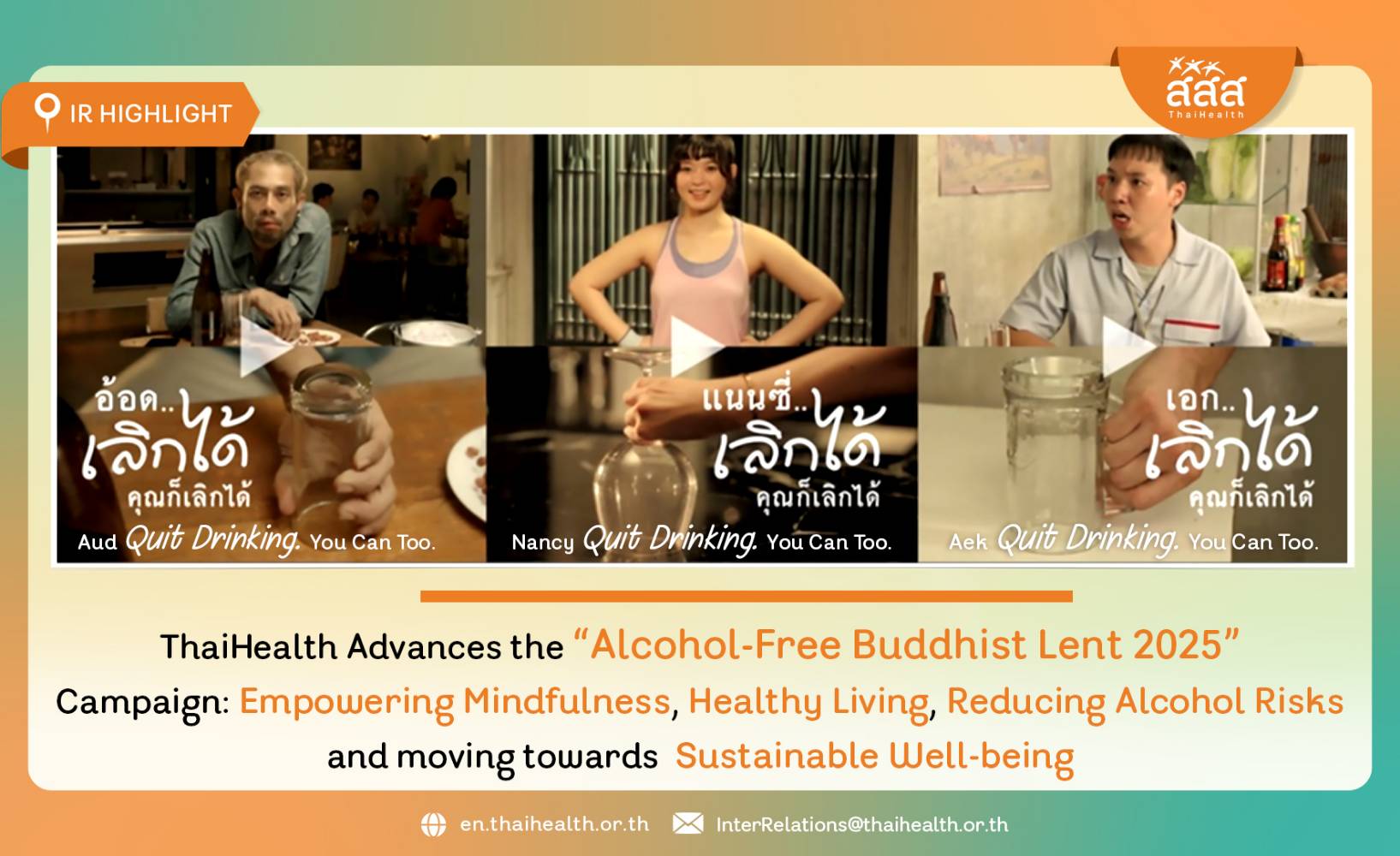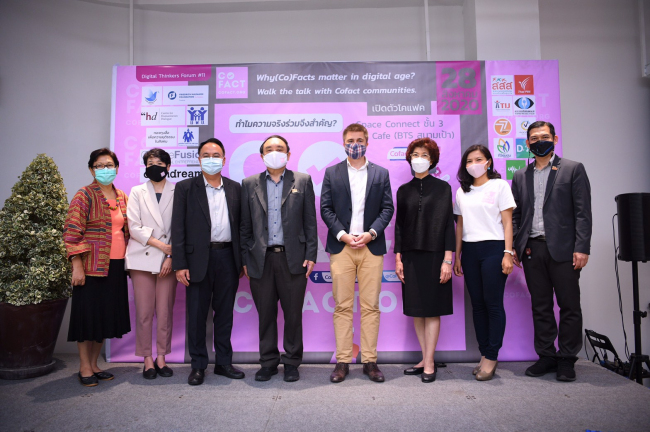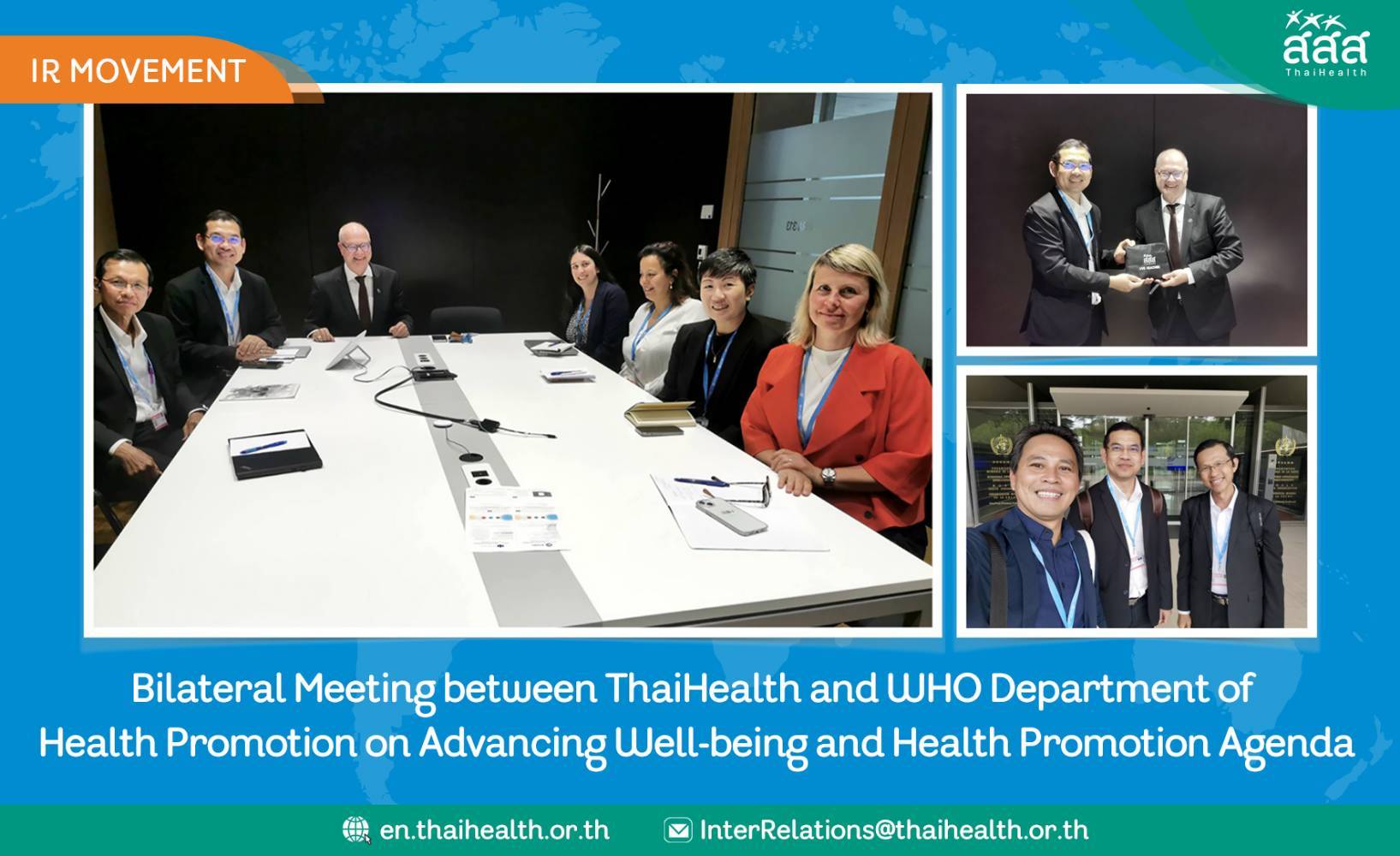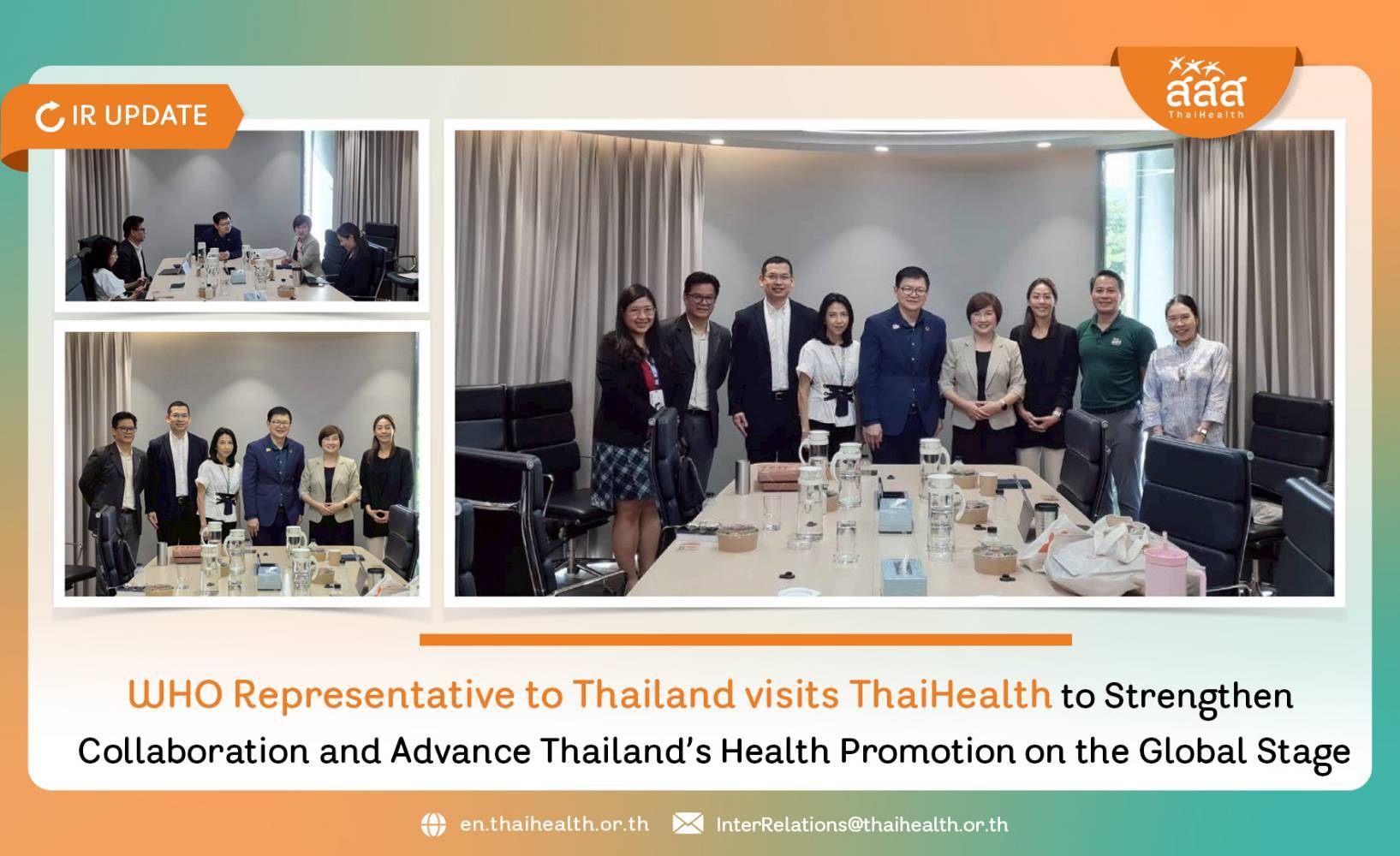
WHO Representative to Thailand visits ThaiHealth to Strengthen Collaboration and Advance Thailand’s Health Promotion on the Global Stage
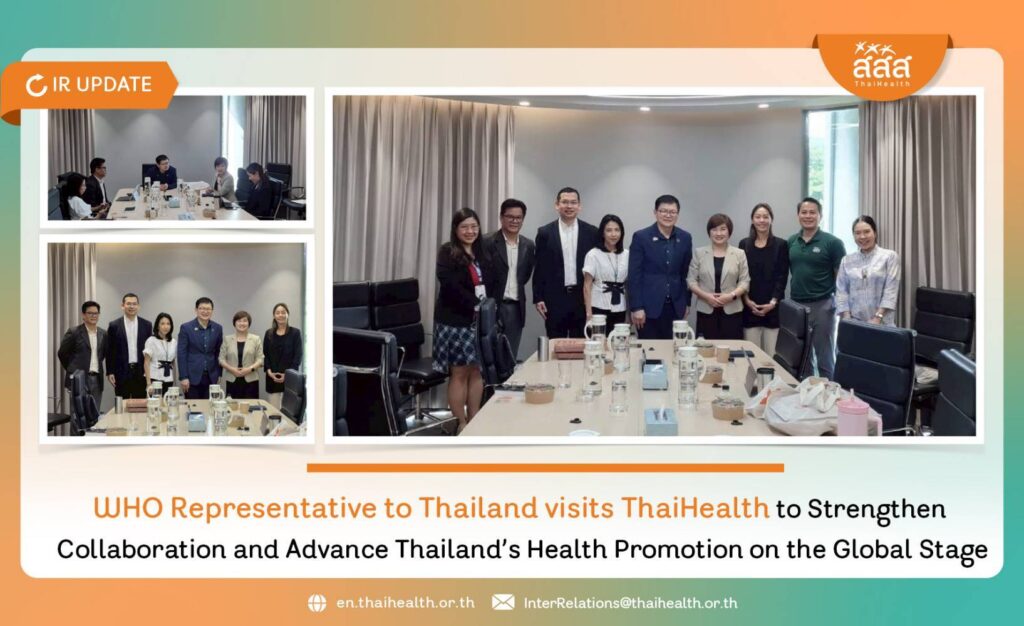
On 17 September 2025 at the ThaiHealth Center in Bangkok Dr. Pongthep Wongwatcharapaiboon, ThaiHealth CEO, along with Mrs. Benjamaporn Limpisathian, Deputy CEO, Dr. Pairoj Saonuam, Deputy CEO, and Dr. Prakasit Kayasith, Senior Assistant CEO, warmly welcomed Dr. Ailan Li, the newly appointed WHO Representative to Thailand, who assumed her role on 1 September 2025, and Dr. Teeranee Techasrivichien, WHO Technical Officer.
The visit marked an important step in strengthening health collaboration between ThaiHealth and WHO, with the aim of scaling up national, regional and global impact. Discussions focused on strategic areas such as E-cigarette control, commercial determinants of health, child development, physical activity promotion, healthy diets, and border health.
Embracing a people-centered, community-driven approach
ThaiHealth highlighted its major strategic shift towards “a people-centered, community-driven approach”, ensuring that health promotion efforts are more responsive and deliver tangible results at the community level.
At the core of this transition is the DOPA Framework, which guides sustainable health promotion through four pillars:
- Data-driven: Leveraging local-level data to design context-specific health interventions.
- Outcome-driven: Focusing on measurable, tangible health outcomes.
- Partner-driven: Building strong partnerships across multiple sectors, especially with civil society organizations (CSOs), to drive sustainability.
- AI-driven: Harnessing technology and artificial intelligence to enhance health promotion efficiency.
This model has already been piloted in several provinces through the District Health Fund mechanism, a collaboration between the National Health Security Office (NHSO) and local administrative organizations, ensuring health benefits are delivered directly to the people.
Community-driven success stories
One notable initiative is the “Helmet Bank” project in early childhood development centers, where teachers instill helmet-wearing habits among children, who then influence their families to adopt the practice. Participating centers have achieved 100% helmet use, with more than 400 centers currently implementing the project. The goal is to expand nationwide to over 20,000 centers—showcasing the power of community-driven health promotion in creating widespread positive impact.
Scaling up at the regional and global levels
At the regional level, ThaiHealth is preparing to co-host the Southeast Asia Physical Activity Conference 2025 (SEAPAC2025), building on the 2016 Bangkok Declaration on Physical Activity and aligning with the Global Action Plan on Physical Activity 2018–2030 (GAPPA).
In addition, discussions included the upcoming National Step Challenge, designed to encourage increased physical activity nationwide, with WHO providing technical guidance based on international best practices.
ThaiHealth is also expanding its work on border health, focusing on the health of migrant workers from upstream prevention to comprehensive care. Collaboration will be strengthened with academic institutions, NGOs, and cross-border partners to develop a more inclusive health system.
WHO reaffirming support
Dr. Ailan Li reaffirmed WHO’s commitment to support Thailand in advancing evidence-based health outcomes and underscored the country’s growing role as a regional and global health hub in Southeast Asia.


